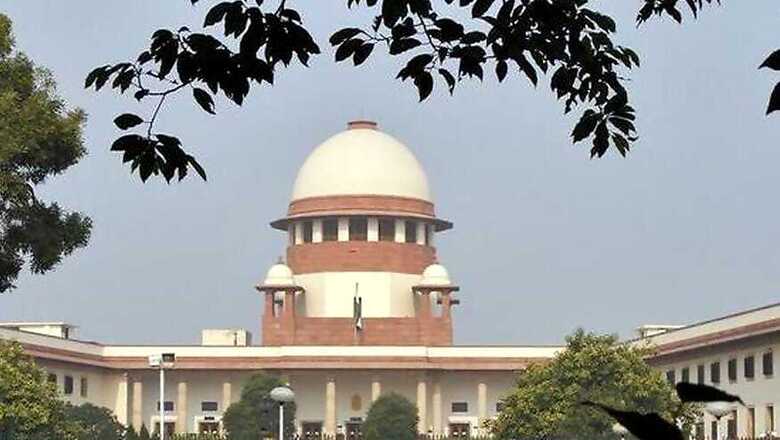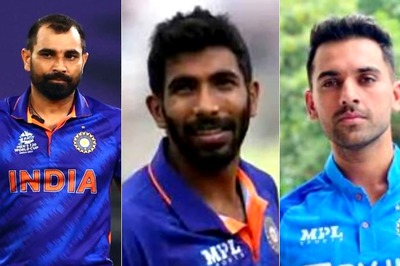
views
New Delhi: The Supreme Court order directing cinema halls to play the national anthem before screening to "instill committed patriotism and nationalism" has received mixed reactions from legal experts with a few terming it as "judiciary's over-enthusiasm" and others saying playing it and respecting it won't cause any harm.
While former Attorney General and noted lawyer Soli Sorabjee said courts cannot direct the public to stand up and do anything, senior advocate K T S Tulsi said judiciary should not go into the areas which does not belong to it.
However, Meenakshi Lekhi, a lawyer and BJP MP from New Delhi constituency, has no reservation on the Supreme Court order saying respecting the anthem "causes no harm".
"National anthem is sung at various places like schools, public functions, events etc. What's the harm in playing it at another venue? It causes no harm and it is natural to stand up when the anthem is played," she said.
Tulsi and senior advocate K K Venugopal were of the view that this order could lead to law-and-order problem as it would be difficult for theatre owners to make people stand especially children and elderly viewers or those who are physically challenged.
Sorabjee, who termed the order as judiciary's over enthusiasm, said, "They can give directions to the executive government to amend the acts. But they can't give directions by themselves to stand up, to do this, do that."
Lekhi said the law is clear about the national anthem as it was already mentioned in the Prevention of Insults to National Honour Act.
"The court had just read the law," she said, adding that people living in the country must abide by the law of the land.
Meanwhile, Tulsi reminded the judiciary that its primary responsibility is "adjudication".
"Courts must think through on what is their jurisdiction. Their primary responsibility is adjudication. Adjudication is getting delaying for decades and we are going into areas which don't belong to us," he said.
"I don't agree with the judgement at all. Firstly it's not the function of the courts to decide what public behaviour is ought to be. It will create a huge problem to ensure that the national anthem is not disrespected," Tulsi said, adding some persons may even overreact and may result in a fist fight when a disabled-man or somebody chose not to stand up.
Lekhi also said respecting the anthem is secular and added every law has its foundation in the Constitution of the country.
"The way every country exists depends upon the law of the country. Law of the land and Constitution is unbreachable," she added.
"When we can claim the Freedom of Religion, Speech and Expression and other Fundamental Freedoms under the Constitution, why can't we obey the Fundamental Duties under the same," she asked.
Venugopal expressed views similar to Tulsi, echoing concerns of theatre owners that they would not be able to make people stand and said the court could have recommended the amendment of Cinematograph Rules.
"The theatre owners would not be able to make people stand, therefore it would have been more appropriate if the court had recommended the government to amend Cinematograph Rules to provide for the playing of the national anthem and the compulsion to stand while it is being played," he said.
The apex court in its November 30 order had said, "A time has come when citizens of the country must realise that they live in a nation and are duty-bound to show respect to the national anthem which is the symbol of constitutional patriotism and inherent national quality."
The bench, which passed the order on a PIL, had also issued a slew of directions to ensure respect for anthem while it would be played in the cinema halls which included the closure of entry and exit doors so as to avoid any kind of disturbance.
The Centre had said that the anthem has to be respected and assured the bench that the order of the court would be circulated to the chief secretaries of all the states and Union territories.
















Comments
0 comment